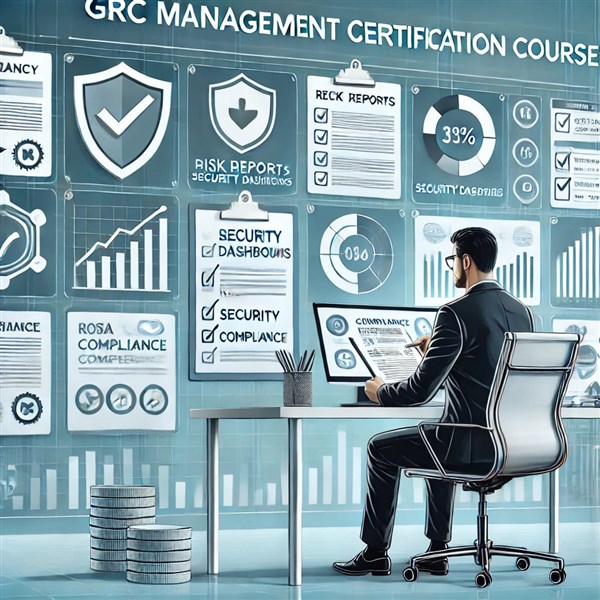Unable to find what you're searching for?
We're here to help you find it
In a world where data breaches, regulatory pressure, and corporate accountability are at an all-time high, Governance, Risk, and Compliance (GRC) has become a cornerstone of strategic management in modern enterprises. Organizations across all sectors are investing heavily in GRC frameworks to improve decision-making, manage risks, and ensure compliance with a growing number of legal and industry standards.
As a result, the demand for GRC-certified professionals has exploded. Earning a GRC Management Certification not only boosts your credibility but also arms you with the practical skills needed to implement and manage GRC programs effectively.
In this blog, we’ll explore the core skills you’ll gain from a GRC Management Certification course and how these competencies can shape and accelerate your career in risk, compliance, audit, IT security, or executive governance.
At the heart of every GRC certification is a deep dive into widely recognized governance, risk, and compliance frameworks, including:
These frameworks offer a structured approach to enterprise governance and risk management. GRC training helps you understand how to map, apply, and integrate these standards into your organization’s policies and systems.
Risk is everywhere — from cyber threats to legal liabilities, financial errors, and supply chain disruptions. A GRC certification course trains you to:
By the end of your training, you'll know how to build a mature risk management process that balances opportunity and threat — a vital skill for both operational teams and executives.
GRC professionals often work with boards, legal teams, and top management. As such, your training will include:
You’ll develop the skill to bridge the gap between business objectives and operational controls, ensuring the entire enterprise aligns with its mission and values.
Whether it's GDPR, HIPAA, SOX, PCI-DSS, or industry-specific mandates, compliance is a critical responsibility. GRC certification equips you with tools to:
This skill is vital in industries like healthcare, finance, government, and manufacturing, where non-compliance can lead to fines, lawsuits, and reputational damage.
Many GRC roles overlap with internal audit functions. Through your training, you’ll learn how to:
Understanding audit methodologies helps ensure continuous improvement in risk and compliance controls, making you a valuable asset to assurance teams.
Most GRC courses include a strong cybersecurity and data governance component, particularly those aligned with ISO/IEC 27001 or NIST. You’ll learn:
These skills are especially useful if you’re working in IT GRC, cybersecurity governance, or cloud compliance roles.
Modern GRC training often introduces you to tools and platforms that help automate and manage GRC functions, such as:
You’ll understand how to use these platforms for:
Mastery of GRC tools is a major asset for job roles in large enterprises and multinational corporations.
GRC professionals must be effective communicators — especially when presenting findings to executives, boards, and auditors. Your certification course will teach you:
These soft skills are essential for building trust, influencing policy, and securing buy-in from stakeholders.
GRC isn’t just about policies and risk metrics — it’s also about building a culture of integrity and accountability. Through your training, you’ll gain insight into:
This skill set allows you to go beyond compliance and contribute to a more resilient, ethical organization.
Lastly, GRC certification gives you strategic visibility and cross-functional influence. You’ll learn how to:
In short, a GRC certification positions you as a future-ready leader in enterprise risk, governance, and compliance.
Conclusion
In a landscape where organizations face constant disruption, regulatory change, and security threats, GRC professionals are more valuable than ever. A GRC Management Certification doesn’t just validate your knowledge — it equips you with practical, future-ready skills to lead governance, risk, and compliance initiatives at scale.
Whether you’re transitioning into GRC, aiming for a leadership role, or strengthening your risk or compliance credentials, the skills you gain from a GRC certification course will help you:
✅ Mitigate risks
✅ Build trust
✅ Ensure accountability
✅ Enable sustainable business growth
At Koenig Solutions, a leading IT training company, we offer a wide range of certification courses in top technology courses, including GRC Management. Our courses are designed to provide you with practical skills and knowledge to excel in your professional career.

Aarav Goel has top education industry knowledge with 4 years of experience. Being a passionate blogger also does blogging on the technology niche.










